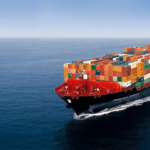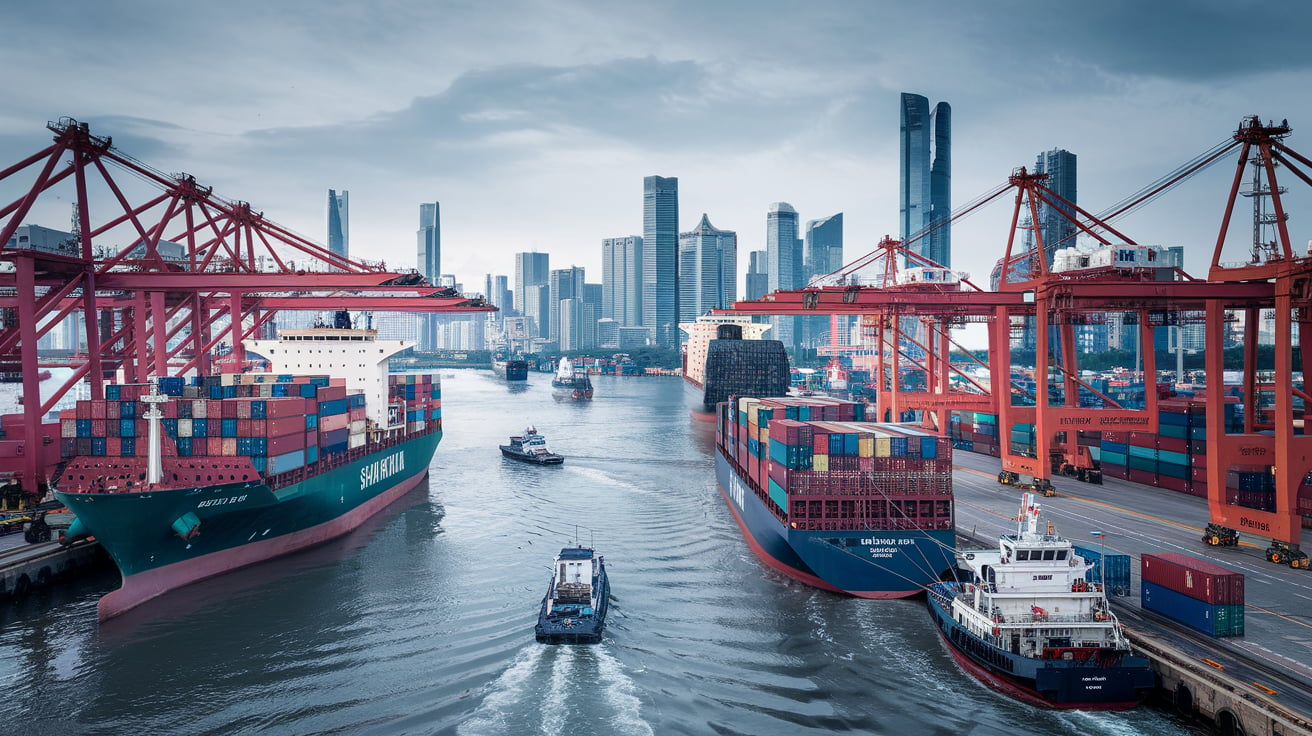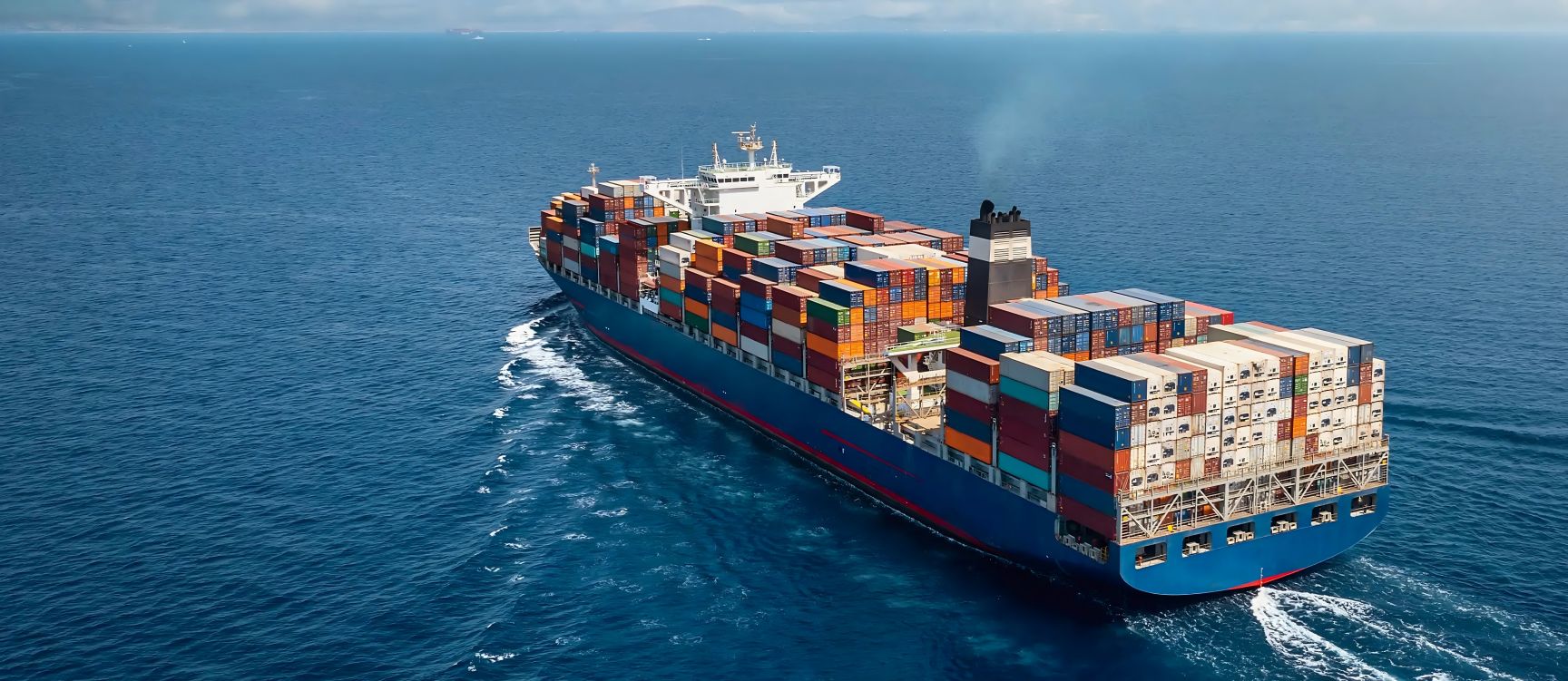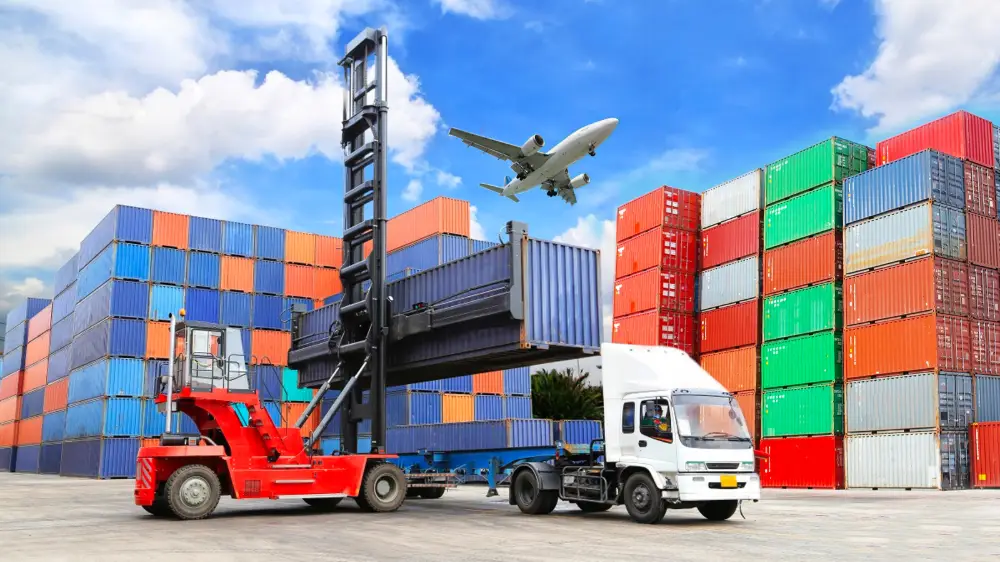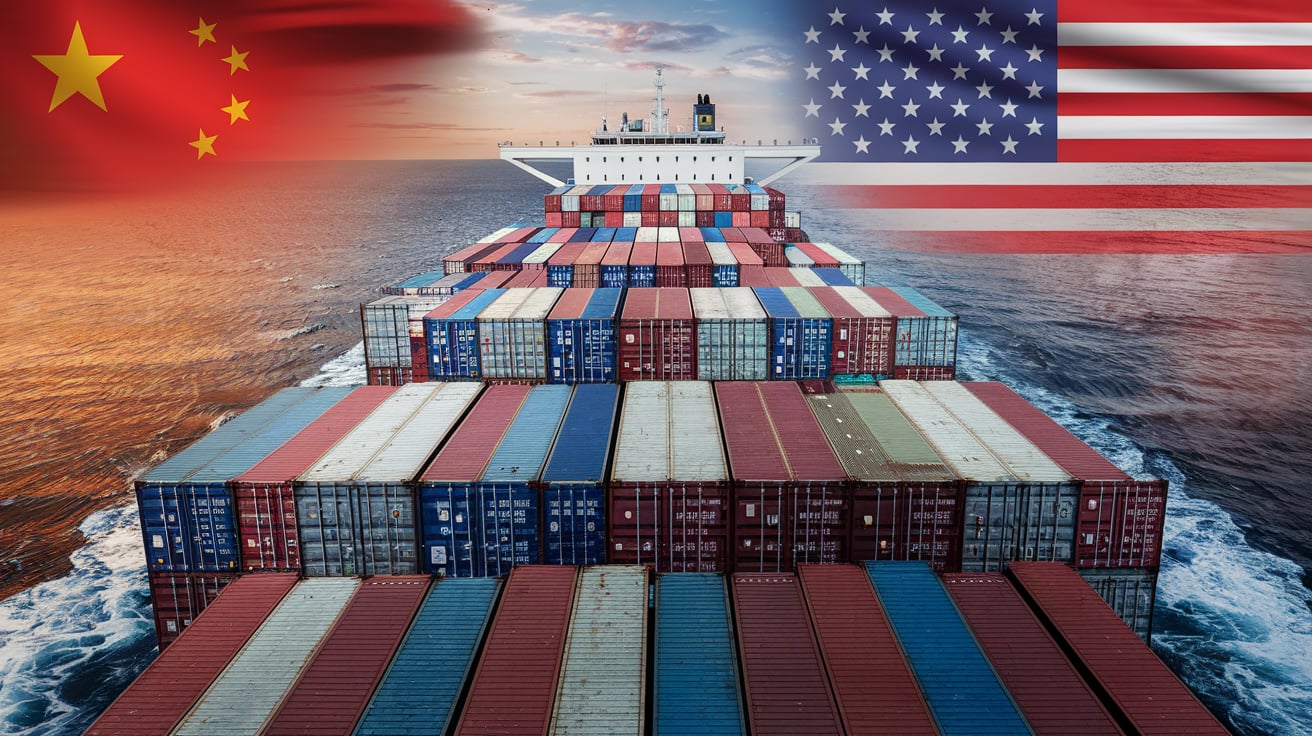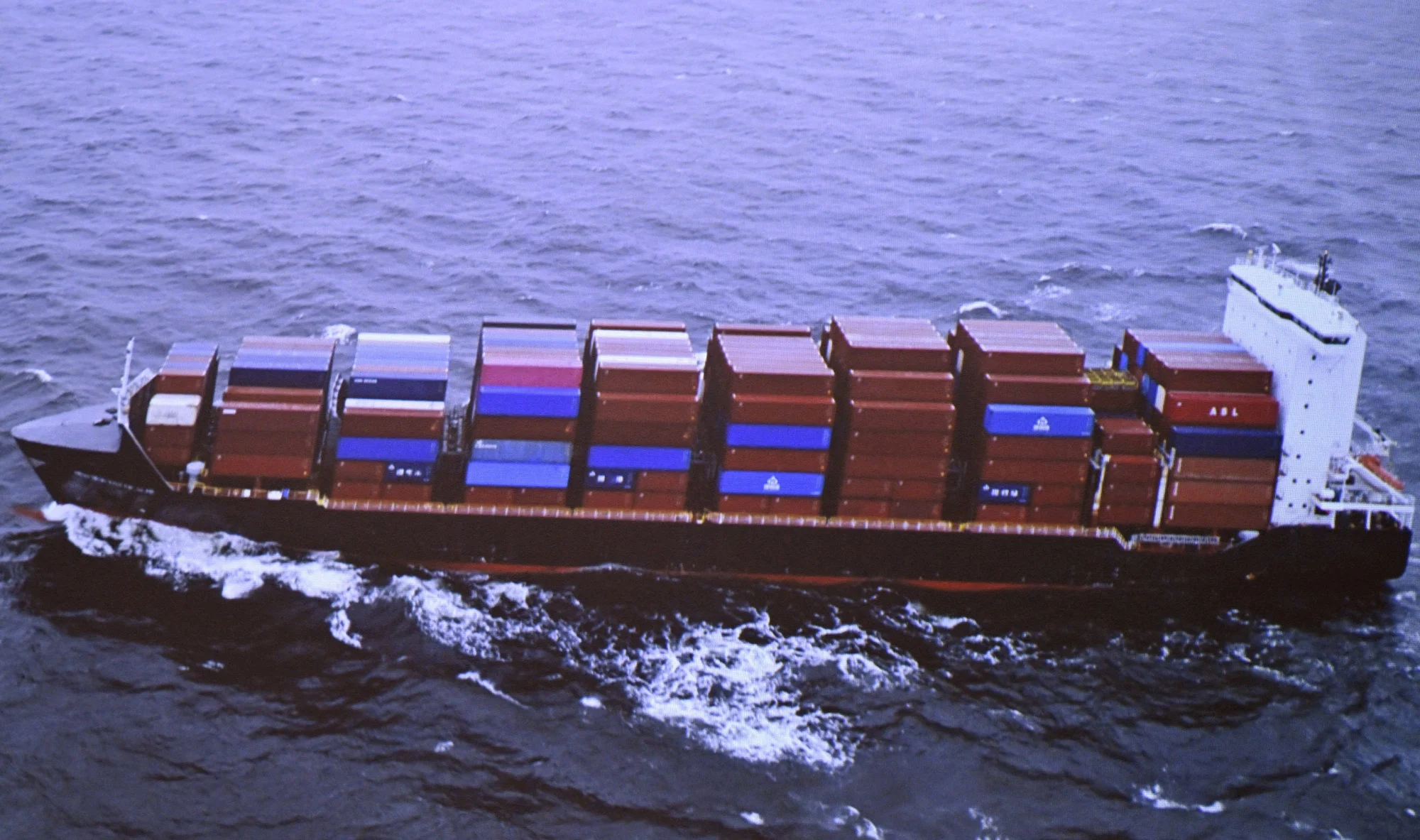In today’s globalized economy, the trade relationship between China and Japan plays a pivotal role in shaping the dynamics of the Asia-Pacific region. With a trade volume exceeding $318 billion in 2023, understanding the complexities of importing goods between these two nations is essential for businesses seeking to thrive in international markets. One of the key components to facilitating smooth trade operations is the role of freight forwarding. This comprehensive guide delves into the essentials of freight forwarding from China to Japan, highlighting the significance of logistics management, key benefits of partnering with a freight forwarder, and critical factors to consider when selecting the right logistics partner for your business needs. Whether you are a seasoned importer or new to international trade, this guide aims to equip you with the knowledge necessary to navigate the logistics landscape effectively.
Related Article: Shipping From China To Japan
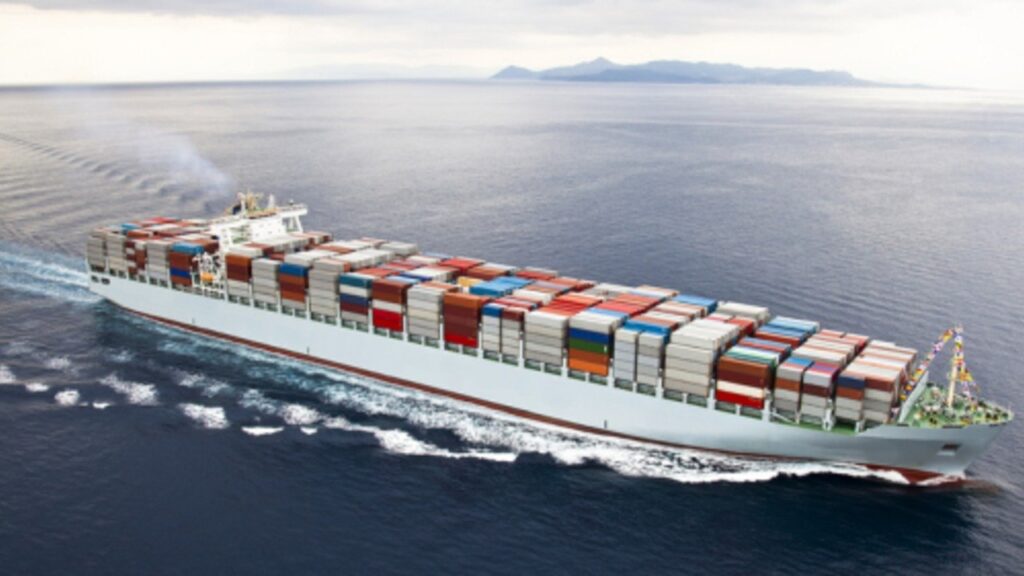
Overview of China and Japan Trade
Trade between China and Japan has evolved over decades, reflecting a complex relationship influenced by historical, economic, and cultural factors. As two of the largest economies in Asia, their bilateral trade relationship is vital not only for their respective economies but also for the broader Asia-Pacific region.
Key Statistics
- Trade Volume: According to the latest data from the Japan External Trade Organization (JETRO), the total trade value between China and Japan reached approximately $318 billion in 2023. This figure underscores the strength of their economic ties.
- Major Exports and Imports: China primarily exports electronics, machinery, textiles, and toys to Japan, while Japan exports machinery, vehicles, and high-tech products to China. This reciprocal exchange highlights the complementary nature of their economic structures.
Economic Interdependence
The trade relationship has fostered significant interdependence. China is Japan’s largest trading partner, accounting for about 25% of Japan’s total trade. Conversely, Japan is a crucial investor in China, particularly in sectors like automotive and electronics. This interdependence has led to collaborative efforts in technology and innovation, contributing to the growth of both economies.
Challenges and Opportunities
Despite the robust trade dynamics, challenges such as geopolitical tensions, trade regulations, and environmental concerns remain prominent. However, opportunities for growth exist in areas like sustainable practices, digital trade, and e-commerce. As both nations navigate these complexities, strategic partnerships and enhancements in logistics will be pivotal in maximizing trade efficiency.
Understanding Freight Forwarding
As international trade continues to expand, the importance of logistics and supply chain management becomes increasingly evident. One of the key components of this process is freight forwarding, which plays a crucial role in facilitating the smooth movement of goods from one country to another.
What is a Freight Forwarder?
A freight forwarder is a specialized logistics service provider responsible for organizing the transportation of goods on behalf of businesses and individuals. They act as intermediaries between shippers and various transportation services, such as shipping companies, air freight carriers, and trucking firms. Freight forwarders manage and coordinate the logistics involved in moving goods, ensuring that shipments are delivered on time and within budget.
Key functions of freight forwarders include:
- Documentation Management: Handling all necessary documents required for international shipping, including bills of lading, commercial invoices, and customs declarations.
- Cargo Insurance: Offering options for cargo insurance to protect goods against loss or damage during transit.
- Customs Clearance: Assisting in the customs clearance process to ensure compliance with import and export regulations.
- Warehousing Solutions: Providing storage solutions for goods awaiting shipment or distribution.
The Role of Freight Forwarders in International Shipping
Freight forwarders play a pivotal role in the global supply chain, offering several benefits that enhance the efficiency of international shipping:
| Role | Description |
|---|---|
| Coordination | Freight forwarders coordinate all aspects of the shipping process, from pickup to delivery, streamlining operations. |
| Cost Efficiency | By consolidating shipments and negotiating rates with carriers, freight forwarders can provide cost-effective solutions. |
| Risk Management | They help businesses navigate the complexities of international shipping, reducing exposure to potential risks. |
| Expertise and Resources | Freight forwarders possess in-depth knowledge of shipping regulations, routes, and logistics, ensuring smooth transactions. |
| Customer Support | They provide ongoing support throughout the shipping process, offering updates and resolving issues as they arise. |
In this context, partnering with a reliable freight forwarder like Dantful International Logistics is crucial for businesses engaged in importing goods from China to Japan or vice versa. With a comprehensive range of services, including customs clearance, warehouse services, and door-to-door shipping, Dantful is committed to providing a highly professional, cost-effective, and high-quality one-stop international logistics service for global traders.
By utilizing the expertise of freight forwarders, companies can enhance their shipping efficiency, mitigate risks, and focus on core business activities, ultimately contributing to their growth and success in the competitive global market.
You may be interested in the following related articles:
- Shipping From China To Sri Lanka
- Shipping From China To India
- Shipping From China To Kyrgyzstan
- Shipping From China To Tajikistan
- Shipping From China To Uzbekistan
- Shipping From China To Turkmenistan
- Shipping From China To Vietnam
- Shipping From China To Thailand
- Shipping From China To South Korea
- Shipping From China To Singapore
Benefits of Using a Reliable Freight Forwarder
Engaging the services of a reliable freight forwarder can significantly enhance the efficiency and effectiveness of international shipping operations. Leveraging their expertise allows businesses to navigate the complexities of global logistics with ease.
Expertise in International Shipping
Freight forwarders possess specialized knowledge regarding the intricacies of international shipping regulations, customs procedures, and documentation requirements. Their expertise enables them to streamline the shipping process, ensuring compliance with local and international laws. Understanding the nuances of different countries’ regulations helps avoid costly delays and penalties.
Key aspects of their expertise include:
- Customs Regulations: Familiarity with customs procedures ensures that shipments clear borders without unnecessary holdups.
- Incoterms Understanding: Knowledge of International Commercial Terms (Incoterms) guides businesses in determining responsibilities for shipping costs, risks, and insurance.
Cost-Effectiveness
A proficient freight forwarder can provide cost savings in several ways:
- Negotiated Rates: They have established relationships with carriers, negotiating better shipping rates that may not be available to individual businesses.
- Consolidation Services: By consolidating multiple shipments, freight forwarders can reduce overall shipping costs, which is particularly beneficial for small and medium-sized enterprises (SMEs).
- Efficient Route Planning: Their expertise in route optimization minimizes transit times and costs, leading to more efficient logistics.
Simplified Logistics Management
Managing logistics can be a daunting task, especially for businesses new to international trade. A reliable freight forwarder simplifies this process through:
- Single Point of Contact: They act as a central liaison for all shipping needs, coordinating between shippers, carriers, and customs authorities, which simplifies communication.
- Comprehensive Service Packages: Many freight forwarders offer a complete suite of services, including warehouse services, customs clearance, and door-to-door shipping, thereby reducing the need for businesses to engage with multiple service providers.
Risk Management
International shipping inherently involves various risks, including delays, damage, and loss of goods. A competent freight forwarder helps mitigate these risks through:
- Cargo Insurance: They offer insurance options to protect shipments from loss or damage during transit.
- Contingency Planning: Experienced freight forwarders develop contingency plans for potential disruptions, ensuring that businesses can quickly adapt to unforeseen circumstances.
Value-Added Services
Many freight forwarders provide additional services that enhance the shipping experience, such as:
- Tracking and Visibility: Advanced tracking systems enable real-time visibility of shipments, allowing businesses to stay informed throughout the shipping process.
- Consultative Advice: By analyzing shipping data, freight forwarders can offer insights for improving logistics strategies and optimizing supply chains.
- Specialized Handling: For specific industries, such as pharmaceuticals or perishables, freight forwarders can offer tailored solutions that meet unique shipping requirements.
How to Evaluate a Freight Forwarder
Choosing the right freight forwarder is a crucial decision that can impact the efficiency and success of your logistics operations. Various factors should be considered when evaluating potential partners.
Expertise and Experience
Look for freight forwarders with a proven track record and experience in your specific industry. Assess their knowledge of shipping regulations, documentation, and customs processes relevant to your goods.
Global Network and Reach
A well-established freight forwarder should have a comprehensive global network, enabling them to offer services in multiple regions. Their relationships with carriers and agents across different countries can facilitate smoother transactions and better pricing.
Range of Services
Consider the scope of services that a freight forwarder offers. A versatile provider should include:
- Air Freight and Ocean Freight options.
- Customs Clearance assistance.
- Warehouse Services for storage and distribution.
- Door-to-Door Shipping capabilities.
Reliability and Reputation
Research the reputation of potential freight forwarders by checking customer reviews, testimonials, and their history of meeting delivery timelines. A reputable provider should have a solid track record of reliability and customer satisfaction.
Technology and Innovation
Evaluate the technology systems that the freight forwarder employs. Advanced technology solutions for tracking shipments, managing documentation, and providing visibility are essential for efficient logistics management. Determine if they offer online platforms for easier communication and updates.
Cost Efficiency
While cost should not be the sole determining factor, it is essential to assess the pricing structures of different freight forwarders. Compare quotes to ensure that you are receiving competitive rates without compromising service quality. Take into account the value-added services offered and how they align with your needs.
By carefully considering these aspects, businesses can select a freight forwarder that aligns with their specific requirements, ultimately leading to more efficient and effective international shipping operations. Dantful International Logistics stands out as a highly professional and cost-effective partner, providing comprehensive logistics services tailored to meet the diverse needs of global traders.

Young Chiu is a seasoned logistics expert with over 15 years of experience in international freight forwarding and supply chain management. As CEO of Dantful International Logistics, Young is dedicated to providing valuable insights and practical advice to businesses navigating the complexities of global shipping.







